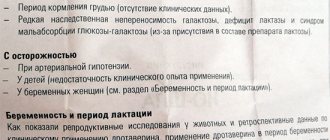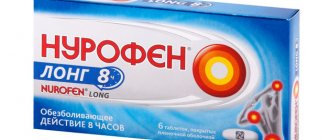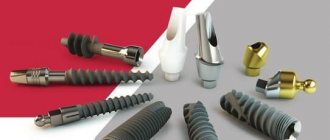Does your tooth hurt when pressed? This symptom may indicate a disease that needs to be treated immediately by a dentist. Only a specialized doctor will be able to diagnose and make an accurate diagnosis: caries, pulpitis, periodontitis or another disease, or perhaps the cause is a tooth injury or a growing wisdom tooth.
Photo from the site m.yukle.mobi
If the tooth aches when pressed or other unpleasant sensations occur, you need to find out the cause as soon as possible and begin treatment. For example, acute pain when pressing on a tooth occurs with pulpitis, and aching pain occurs with chronic diseases.
Causes of pain when pressing
Why does a tooth hurt when pressed? A symptom does not arise just like that; it is a protective reaction of the body in response to a negative factor. If it hurts to press on a tooth , the cause may be the presence of the following diseases:
- caries,
- pulpitis,
- periodontitis,
- injury,
- consequences of the treatment.
Caries
This is the destruction of the enamel surface, which occurs under the influence of harmful environmental factors. The process of destruction of enamel takes several years and at first may not cause any symptoms, but if medium or deep caries develops, tooth pain may occur when pressed. .
Pulpitis
This is an inflammatory disease that affects blood vessels and nerves in the root system. As a result of inflammation in the neurovascular bundle, the gums near the tooth hurt when pressed. Also, with pulpitis, acute pain occurs when pressing on the tooth.
Periodontitis
This is an inflammatory disease of the root and surrounding tissues (periodontal). In this case, the patient complains that the tooth near the gum hurts when pressed.
Often this disease develops after treatment. For example, a patient has undergone surgery to remove a nerve. During the manipulation, the rules for disinfecting dental instruments were not followed. As a result, the patient turns to the dentist again .
In this case, the cause of periodontitis is bacteria that penetrate the root system and multiply. As a result of inflammation, the patient's gums at the root of the tooth will hurt when pressed.
Tooth injury
Injuries include crown fracture, bruise, crack, dislocation, root fracture and damage to the tooth germ. The clinical picture may vary depending on the level and extent of injury.
In case of a fracture or dislocation, the patient will complain that the tooth root hurts when pressed. If the gum above the tooth hurts when pressed , then most likely it is a bruise or damage to the rudiment.
Most often, injuries occur in the front teeth, due to their anatomical structure and location. With cracks and dislocations, the patient complains that the front tooth hurts when pressed. If the damage is at the root, the gums around the tooth will hurt when pressed. .
Does your upper front tooth hurt when pressed? It should be noted that fractures and other injuries often occur in the upper jaw, so if the upper front tooth hurts when pressed, you should think about a possible injury. Damage to the root system is accompanied by pain in the gums above the upper tooth when pressed. If it hurts to press on the front upper tooth , then most likely the damage occurred to the crown.
Why shouldn't you ignore pain?
Some people tend to ignore pain. They do not understand the seriousness and consequences that pain in a filled tooth can entail.
The reasons for refusing to visit a doctor are different, some are simply afraid, while others have high hopes that it will go away on its own or use painkillers and traditional methods to relieve pain.
The consequences of such a negligent attitude towards one's health are very serious. An infection in a tooth can lead to infection and spread to other teeth, gums and bone tissue. Advanced inflammation can lead to the worst case scenario, when the patient requires surgery. Such dental treatment will be much more painful, it will be lengthy and expensive.
Therefore, it is best to consult a dentist at the first pain symptoms, which will allow you to avoid negative consequences in the future.
Read also: Effective cure for toothache
Why does a healthy tooth hurt?
Is the tooth intact, but does it hurt when you press it? The appearance of the oral cavity does not indicate its health. There may be no visible damage, but numerous pathological processes may occur in the tooth root and surrounding tissues.
If the whole tooth hurts when pressed, you should consult a dentist, as there may be serious damage to the root or root zone. Lack of timely treatment can lead to serious and irreversible consequences.
If seemingly healthy tooth when pressed, it could be the following pathologies:
- Inflammation of the gums (periodontal disease). Initially, the disease does not cause pain and is manifested only by bleeding gums. Over time, the inflammation progresses and is characterized by the tooth aching when pressed.
- Mechanical damage (cracks in enamel). Due to minor mechanical damage to the enamel, dentin is exposed and sensitivity worsens. Thus, severe pain may occur when pressing on the tooth while drinking cold or hot drinks, sour foods, etc.
- Damage to adjacent teeth can cause pain in healthy teeth. All this is explained by the structural features of the nervous system that innervates the oral cavity.
- If the gum under the tooth hurts when pressed, then most likely it is hidden caries. The disease is dangerous because it does not manifest itself visually. Caries can develop on the back surface of the crown or deep within the root system.
- Hidden pathologies. This should include a cyst and injury. These diseases may not be noticeable during external examination, but as they progress, they can cause pain in the gum above the tooth when pressed.
- Inflammation of the facial nerve. Sometimes the cause of discomfort may not be a dental disease. Inflammation of the facial nerve can spread to its branches, which are responsible for innervation of the upper and lower jaw. As a result, the gums and teeth hurt when pressed.
- Cold. Often patients with ARVI complain that pain appears when pressing on the tooth. This is due to the fact that against the background of the disease there is an exacerbation of pathological processes that previously existed, but did not bring any concern.
Causes of toothache during filling
Toothache can occur after the filling has been placed; there can be various reasons for this.
If the painful sensations do not go away for a long time or intensify, this indicates that after filling the tooth an inflammatory process has begun. You need to take this very seriously and consult a doctor for qualified help. The main causes of pain.
- The pulp tissue or nerve was poorly removed. This causes acute pain, and very severe pain. In such a situation, you need to immediately go to the dentist , remove the filling and go through the filling procedure again.
- Inflammatory processes in tissues are also one of the causes of pain. During filling, a void forms in the tooth and, if the procedure is performed poorly, inflammatory processes begin to occur in it. In addition to pain, the patient may experience swelling of the gums. As a rule, such pains are pulsating, but they do not appear immediately, but after a short period of time, when the inflammatory process is in full swing.
Read also: Teeth are crumbling, what to do
When pressing or biting on a tooth, the pain can become cutting. The smell from the mouth is quite unpleasant. Inflammation in the tooth may be accompanied by fever and weakness in the body. You should not delay visiting a doctor, as the infection and inflammatory process will develop rapidly, and this will lead to tissue damage and harm your health. You need to see a doctor immediately.
An allergic reaction can cause pain. This happens extremely rarely, but still occurs in dental practice. Allergies can occur to certain medications and materials used for filling. There is only one way to fix this problem. The old filling is removed from the tooth and a new one is placed, only now a different material is used that will not cause an allergic reaction.
If the filling of a tooth went well, but after a few months pain appeared, perhaps the reason for its occurrence is mechanical damage to the filling. The material from which the filling is made is quite strong, but still has the ability to wear out.
If visual damage to the filling is not visible, but there is pain, you should definitely consult a dentist, since only a doctor will be able to determine the true cause of the pain. The doctor is able to notice even a minor microcrack. A damaged seal definitely , so the sealing procedure will have to be completed again.
Pain when pressing on a wisdom tooth
Why does it hurt to press on a wisdom tooth? This is due to the anatomical features of the figure eight (the dental name for a wisdom tooth): it has no predecessors. That is why its very appearance is accompanied by pain and discomfort.
Eights appear by the age of 20–26. It often happens that during their growth there may be deviations: incorrect direction and compression of neighboring teeth. The patient complains that the gum above the tooth hurts when pressed.
4 types of atypical growth:
- distal - growth occurs in the opposite direction,
- horizontal – the tooth grows perpendicular to the others,
- mesial – growth occurs on adjacent teeth,
- vertical - figure eights cannot erupt and remain in their rudimentary position.
How to get rid of pain in a dead tooth
Pain when pressing on the tooth, as well as its sensitivity to hot and cold after nerve removal, are normal in the first days.
If the x-ray shows the source of the problem, the dentist will treat the tooth or prescribe a course of physical therapy. For medicinal treatment in such cases, antipyretic, analgesic and anti-inflammatory drugs are usually used, which will speed up the healing process of damaged tissues and relieve the patient from debilitating toothache. To prevent such problems, after removing the nerve, it is advisable to install a temporary filling, which can be easily replaced with a permanent one.
We suggest you read: Symptoms of a child’s molars coming out - ProfiMed
What can you do at home?
Self-medication is not recommended. A trip to the dentist when it hurts to press on a tooth is mandatory . But there are situations when it is not possible to visit a doctor in the near future, and the pain does not give rest. Then you can carry out a number of simple actions that will help alleviate suffering.
Recommendations:
- Brush your teeth well and refuse to eat for a while.
- Rinse your mouth with saline solution. It is easy to prepare: dissolve 1 teaspoon of baking soda and 1 teaspoon of salt in a glass of warm water. You can add a few drops of iodine to the solution, which will help disinfect the oral cavity.
- When it hurts to put pressure on a tooth, you can take a painkiller. Anti-inflammatory drugs help well: Ibuprofen, Paracetamol, as well as analgesics: Analgin and Aspirin.
How to eliminate pain?
The best solution for toothache of any kind is a visit to the dentist’s office.
To prevent inflammatory processes, you can rinse your mouth:
- (1 tsp per glass of warm water);
- furatsilin solution (1 tablet per glass of warm water);
- infusion of chamomile or calendula (1 tablespoon of herb per glass of boiling water, leave for 30 minutes).
The best solution for toothache of any kind is a visit to the dentist’s office.
- soda solution (1 tsp per glass of warm water);
- furatsilin solution (1 tablet per glass of warm water);
- infusion of chamomile or calendula (1 tablespoon of herb per glass of boiling water, leave for 30 minutes).
Treatment
Photo from pixabay.com
There are several to get rid of pain :
- taking non-steroidal anti-inflammatory drugs and analgesics,
- treatment with folk remedies,
- acupressure,
- removal of a diseased tooth,
- dental treatment.
NSAIDs and analgesics
If your tooth hurts when you press on it, you can take NSAIDs, which include Ibuprofen, Dexalgin, Nurofen, Paracetamol, Ketanol and others. Among the analgesics that quickly and effectively eliminate toothache are Ketorol, Analgin, Aspirin, Baralgin, Spazmalgin and No-shpu.
You should be careful with medications if your child’s tooth hurts when pressed. Not all medications are approved for children under 6 years of age; read the instructions carefully.
ethnoscience
Using folk remedies, local anesthesia can be performed. If your tooth hurts when you press on it , then ice helps: you need to wrap a piece of ice in a towel and apply it to the sore spot for 15–20 minutes. The effect is quick and strong, but short-lived.
Another method is rinsing your mouth with a saline solution. It will not only help relieve pain, but also help fight infection.
Sage decoction is a good disinfectant and pain reliever. To prepare it, take half a teaspoon of sage herb and pour a glass of boiling water over it. After half an hour, cool the broth and rinse your mouth with it every hour.
Do not rinse your mouth with hot broth, as this will increase the discomfort.
Acupressure
Massage at special points helps if a tooth hurts when you put pressure on it, but the effect is temporary.
Main points for massage:
- between the thumb and index finger,
- depression between the lower jaw and cheekbone,
- base of the earlobe,
- angle of the lower jaw.
Tooth extraction and dental treatment
These procedures are carried out in a clinic, at a dentist's appointment. He examines the oral cavity, conducts diagnostics, makes a diagnosis and selects the necessary treatment.
What to do?
consult as soon as possible , who, after examination, will prescribe adequate treatment. If this is not possible and severe pain occurs, you need to resort to first aid.
First aid
First aid should be aimed at relieving pain and symptoms of inflammation. For this purpose, fast and long-acting analgesic drugs are used, which include:
- Ketorol;
- Nurofen;
- Tempalgin.
These drugs begin to act within 15–20 minutes and retain their analgesic effect for 5–6 hours. To relieve symptoms, take 1 or 2 tablets, no more than once every 4 hours.
Also, rinsing will help reduce the intensity of inflammation:
- soda-salt solution prepared from equal parts of the components and 100 ml of water. It helps relieve swelling and drainage of purulent contents;
- decoction of sage with the addition of anise drops . To do this, pour 1 spoon of sage into a glass of boiling water and add 10 drops of anise to it. The product has a local analgesic and anti-inflammatory effect;
- Chlorhexidine, diluted in equal proportions with water. Has a pronounced aseptic effect.
- Furacillin. Active against bacteria and microbes, helps reduce swelling. To prepare the solution, 1 tablet is dissolved in half a glass of water;
- dental elixirs with an analgesic effect.
During pain, it is not recommended to visit the bathhouse , sauna or warm the inflamed area with heating pads. For rinsing, use only room temperature products.
If there is a carious cavity on the tooth, it must be cleaned with a brush and paste. If possible, you need to reduce the load on the problem area. Of the anti-inflammatory drugs, only their non-steroidal group is allowed : ibuprofen, diclofenac .
Antibiotics should be taken only on the recommendation of a doctor. Their use for self-medication can lead to the degeneration of an acute process into a chronic one.
Possible complications
Painful sensations should not be ignored and limited to home treatment. Even the simplest caries can lead to serious consequences when progressing.
The most common complications :
- pulpitis,
- cyst,
- granuloma,
- periodontitis.
These complications can develop in the early stages. In advanced cases, an infection may occur, which leads to the appearance of ulcers, inflammation of surrounding tissues, and even the development of sepsis. As a result of complications, the tooth hurts when tapping or pressing on it.
Pain after CARIES treatment.
The front teeth are more fragile, so they require special care and a painstaking approach during the treatment process.
There are only two treatments for the affected areas of the front teeth - either filling, or microprosthetics, installation of a veneer - a special lining on the tooth. In addition, if a front tooth is completely lost, an implant can be installed in its place.
Filling is used when the carious cavity is small and the enamel surface can be leveled using filling material.
To obtain a filling that matches the color of the patient’s enamel, high-quality materials that have the ability to reflect light are used. The procedure should be entrusted to a good specialist, since it is quite painstaking, and a poorly made filling can quickly fall out.
If the patient delays contacting the dentist, and caries has become significant, then the cured tooth can be covered with a special overlay - a veneer.
Good afternoon, evening or morning! It depends on what time you decide to visit this page. In any case, I welcome you. Our topic today is very interesting for many. What does toothache indicate when you press on a tooth? Most likely, you have some kind of dental problem. This may be acute or chronic pulpitis, you have injured a tooth or the dentist has unsuccessfully treated it. Often pain can occur under the crown.
Toothache when pressing on a tooth
If your tooth hurts when pressed after treatment, there is a good chance that you have developed periodontitis. It can occur under old crowns that you did not replace in a timely manner.
The mechanism of formation and treatment of periodontitis
Post-filling pain
What to do if the tooth under the crown hurts when pressed? Go to the doctor immediately. He will determine the cause by taking a photo.
- It is also possible that a crack has formed in the tooth. Sensitivity increases, and when eating hard foods, you may feel discomfort and pain in the damaged tooth.
- If you recently had a filling placed and the root canals were cleaned, you may feel soreness for several days. If it does not go away within a week, you should see your doctor again.
- If your wisdom tooth hurts when you press it, there are different options. Either it is not growing properly, or it has begun to deteriorate before it has fully grown. In both cases, you need to consult a specialist and take a photo of the tooth.
Root injury
If we are talking about untreated inflammation, it will sooner or later remind itself. How and when is an open question. Pain can appear at any time. For example, what should you do if your tooth hurts when pressed at night? Take an analgesic or non-steroidal anti-inflammatory drug, and immediately seek medical help from a dentist in the morning.
Ketanov tablets
Very often pulpitis is treated incorrectly. The nerve affected by the infection has not gone away, and as soon as your immunity weakens a little, problems begin.
Does a filled tooth become dark and there is pain underneath? This means that the treatment was not brought to its logical conclusion. Cavities can form inside, and painful reactions to heat and cold begin. Very often, periodontitis is discovered by chance when doctors take pictures of neighboring teeth.
The filled tooth becomes darker
This is an inflammation that affects the bone tissue of the jaw. In the process, pus may form, and pain may radiate to the eye on the affected side, as well as to the ear or temple. As soon as you touch a sore tooth or gum, you will immediately feel how wasted it was not to go to the doctor on time. The nerves will produce various false sensations. For example, that the tooth has begun to loosen or that it is higher than the rest in the row.
We suggest you read: Is it painful to remove a wisdom tooth, what to expect and how to relieve the pain
The body temperature may rise, the patient feels general weakness. The infection can spread throughout the body, causing cold symptoms. If the process is started, the gums swell and gumboil appears.
The consequences are very diverse - abscesses, phlegmon and even ostiomyelitis of the jaw bone.
It happens that the cause is tooth grinding and other procedures. Dentists don't always do everything right. The consequences are very sad. The inflammatory process begins, and granulomas - bags of pus - can form. In a neglected state, all this leads to the appearance of flux.
Inflammatory process
Root injury
Ketanov tablets
Very often pulpitis is treated incorrectly. The nerve affected by the infection has not gone away, and as soon as your immunity weakens a little, problems begin.
If a tooth hurts when you press on it, this indicates the presence of pathological changes in the body. An unpleasant symptom is caused by various reasons and can affect any tooth: upper or lower canine, molar, incisor. The dentist will help you establish an accurate diagnosis. Remember, oral pathologies are complicated by dangerous diseases that pose a threat to human life.
Causes of pain when pressing on a tooth:
- Periodontitis is inflammation of periodontal tissue. It occurs after poorly performed dental treatment of deep caries, pulpitis, and sometimes a traumatic form occurs. Pathological organisms are preserved in the roots of the unit. Here, in airless space, they multiply, developing a focus of infection. The primary symptom of periodontitis is pain when biting. To reduce the negative reaction, a person does not load the side with the affected tooth while eating. At rest, there is no symptom, but soon pain appears even when lightly touching the unit with the tongue. It is piercing and unbearable, gradually becoming aching and constant. In addition to the main symptom, the following symptoms appear: decreased general health, cephalgia, increased body temperature. At the appointment, the dentist can easily identify the diseased tooth by tapping it with an instrument, and an additional X-ray is taken;
- Periostitis (flux) is inflammation of the periosteum. The causes of the development of the disease are: inflammatory gum pathologies, periodontitis, caries, ENT infections. In many patients, the impetus for the development of flux is hypothermia, nervous fatigue, and a cold. The pathology at the initial stages is manifested by: the formation of a small lump on the gum at the roots of the affected unit, unpleasant sensations when biting, and hyperemia of the oral mucosa. At its height, the disease is accompanied by: increased body temperature, swelling of the soft tissues of the face, piercing pain in the areas of the head, neck, and jaw. There is swelling of the cheek and, in critical situations, swelling of the neck. My health is rapidly deteriorating.
The person requires immediate medical attention. Complications of periostitis are very dangerous and can lead to death.
- Periodontitis is an inflammation of periodontal tissues, leading to disruption of the functionality of the ligamentous apparatus and changes in the structure of the bone tissue of the jaw. The main cause of gum inflammation is poor oral hygiene. Predisposing factors are: smoking, drinking colored drinks, sweets. If you do not clean your mouth within 30 minutes after eating, activation of conditionally pathological microorganisms begins. Leftover food stuck to the units is an ideal breeding ground for them. The waste product of bacteria, lactic acid, makes enamel vulnerable and contributes to the formation of caries. Food particles and microorganisms in the mouth form plaque. Initially it is soft, but under the influence of saliva salts, it calcifies and becomes hard. Stones located near the gums accumulate and periodontal pockets form. An increase in hard formations expands them and helps the gums move back. In the acute phase, periodontitis manifests itself as severe pain. A person often cannot identify the cause of an unpleasant symptom and indicates that all teeth and gums hurt at the same time. The symptom intensifies when eating or hygienic cleaning. The clinical picture of periodontitis is clear: bad breath, accumulation of purulent masses at the base of the units, hyperemia, swelling of the mucous membranes, an abundance of hard deposits, pigmented plaque, mobility of the units. To confirm the diagnosis, the dentist only needs to conduct a visual examination. Periodontitis is the most common gum pathology.
If you do not seek help from a doctor, there is a risk of complications: tooth loss, gumboil, sepsis, phlegmon.
- Jaw injury is another common cause of pain when biting. If a person hits his face, after an accident he should go to the clinic. Mandatory are: radiography, examination by a traumatologist, neurologist, dentist. After a strong mechanical impact on the jaw, the following develop: traumatic pulpitis, periodontitis;
- Pulpitis is inflammation of the nerve fiber inside the roots of the units. The causes of the pathology are: caries, trauma, poor oral hygiene. The pathology is accompanied by pain in the area of the affected unit, which intensifies when biting. Distinctive signs of pulpitis are attacks of pain at night, which intensifies when consuming hot foods or drinks.
As it became clear, toothaches when pressed are accompanied by various pathologies. None of them has a tendency to self-heal, but is dangerous for the development of complications!
Health care
Most often, it is enough for an experienced dentist to conduct a visual and instrumental examination to establish a diagnosis. To confirm it, x-ray diagnostics are performed.
What can't you do?
It is strictly forbidden to self-medicate if a toothache occurs. The only thing that patients are recommended to do is to take a pain reliever before the expected visit to the doctor, when it hurts when pressing on the tooth.
Prohibited:
- Make warming lotions and compresses. Heat, on the contrary, aggravates inflammatory processes and can provoke an exacerbation.
- Take antibiotics on your own. Such serious medications must be prescribed by a dentist.
- Taking painkillers for a long time without seeking qualified help. Pain relief should be carried out only in the initial stages.
NSAIDs and analgesics do not treat toothache, but only relieve an acute symptom. Further treatment is prescribed by the dentist.
If your tooth begins to hurt when pressed, you should not limit yourself to folk remedies and analgesics. It is best to visit an experienced dentist who will help you cope with toothache when pressing on the tooth for a long time and effectively.
Author: Maria Ivanova, doctor, especially for Karies.pro
Tooth injury
Toothache is one of the main reasons that forces a patient to visit the dentist’s office without delaying the visit. Most often, it is one of the most striking manifestations of dental pathology and, less often, a consequence or complication of medical procedures.
It should be noted right away that toothache is a sign indicating that the problem should be solved as soon as possible and, in many cases, with the help of a doctor.
We suggest you read: It hurts to open your mouth wide, your jaw hurts
If the dental office is nearby and will be open the next day, then there is no need to postpone your visit. And in some cases of acute toothache, you need to seek emergency help at any time. Moreover, teeth tend to hurt at night and in the evenings, when only emergency services work.
This category implies not only external mechanical trauma, but also damage to the integrity of the tooth during treatment or removal of neighboring organs. If at the same time the tooth enamel has developed a deep crack, or a chip of hard tissue has affected the pulp, then very soon such a tooth will begin to react with pain to any food, hot or cold irritants.
It often happens that after a strong blow the tooth remains intact. Unpleasant sensations may appear after several days or even weeks. A crack appears in the enamel, through which hot or sweet food gets into the pulp, causing pain. The problem can also appear after improper dental procedures. If, after cleaning the canals, the tooth hurts when pressed, the dentist may have touched soft tissue or injured a healthy tooth.
Tooth dislocation is another pathology that develops as a result of severe trauma. The molar moves relative to the socket, which causes pain. Therapy begins with an X-ray examination. If the bone tissue remains intact, the tooth is fixed using a special splint. After a month, the additional structure is removed. The specialist tries to save the molar, even if the nerve has been removed from the tooth.
If you experience untidy sensations in your teeth, the first thing you need to do is make an appointment with your dentist. If you cannot see a doctor right away, you must take a suitable pain reliever. You should not get carried away with drugs from this category. They only eliminate the symptom, without eliminating the problem itself.
“{amp}gt;If a tooth hurts when biting, under no circumstances should heat be applied to the affected area. The cause of the discomfort may be a bacterial infection, which will multiply rapidly at high temperatures. Warm compresses can lead to the development of flux. Even if a severe toothache occurs, hygiene procedures should not be neglected. Be sure to remove all food debris and pay special attention to the diseased tooth.
Useful video about why a tooth hurts when pressed
List of sources:
- Grudyanov, A.I. Etiology and pathogenesis of inflammatory periodontal diseases / A.I. Grudyanov, E.V. Fomenko. M.: Medical Information Agency, 2020. 96 p.
- Dental caries: textbook. M.: SpetsLit, 2020. 542 p.
- Maksimovsky, Yu. M. Therapeutic dentistry. Cariesology and diseases of hard dental tissues. Endodontics: textbook / Yu.M. Maksimovsky, A.V. Mitronin. M.: GEOTAR-Media, 2020. 480 p.
- Dentistry. Organization of dental care and dental anatomy: textbook. M.: Phoenix, 2020. 156 p.










